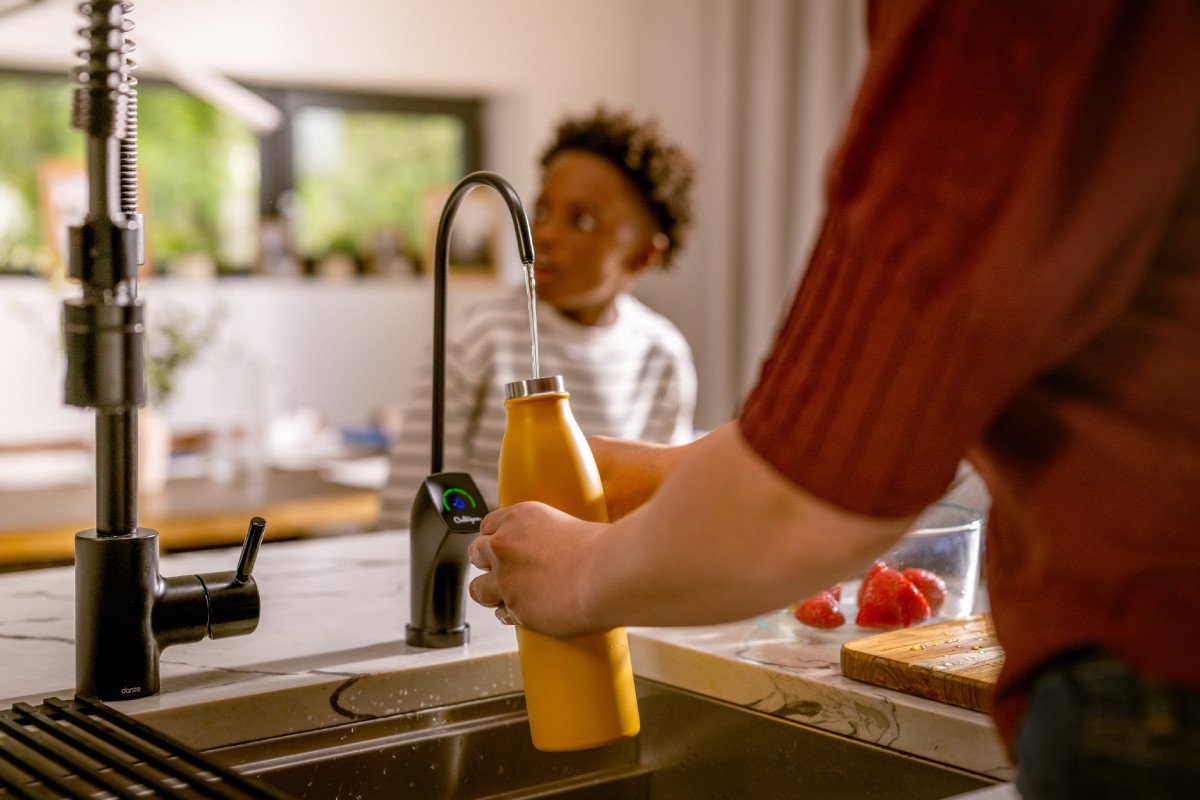PFAS in drinking water near eastern Iowa
Study finds harmful “forever chemicals” in almost half of U.S. tap water.

What are PFAS?
PFAS (formerly PFOS and PFOA) stands for Per - and Polyfluorinated substances. These are known as “forever chemicals” because they resist heat, water, and grease. Some PFAS have been phased out of production. However, there is still PFAS found in many everyday consumer products like shampoo, makeup, non-stick cookware, fast food packaging, clothing, carpeting and more.
PFAS are widespread across the US, including in eastern Iowa. According to the Environmental Working Group, some areas have a higher PFAS concentration than others. The Environmental Protection Agency (EPA) has set the limit for PFAS in public drinking water systems at 4 parts per trillion (ppt). This legally enforceable drinking water standard will protect approximately 100 million people from six specific PFAS.
What are the health effects of PFAS found in water?
PFOA (perfluorooctanoic acid) and PFOS (perfluorooctane sulfonic acid) can be found in water. These chemicals do not break down and stay in the environment, which can build up in soil and contaminate ground and surface water. Long-term exposure can also cause build-up in your blood, kidneys and liver, leading to significant health issues, such as:
- Developmental effects*
- Liver damage
- Reproductive issues
- Thyroid imbalance
- Immune system deficiencies
- Some cancers
*These health effects are especially dangerous for pregnant women and infants.
Public water systems must notify customers if there are high levels of PFAS in their drinking water. Consumers can contact their local water supplier to ask for information on PFOA and PFOS in their drinking water and request a copy of the Consumer Confidence Report.


PFAS solutions from Culligan
Reverse osmosis systems and filters containing carbon can reduce PFAS chemicals in your drinking water. Culligan currently offers two PFAS water treatment solutions, our Aquasential® Smart Reverse Osmosis Water System with Total Defense cartridge and our new Aquasential® Whole Home PFAS Filter. Both can reduce PFOS and PFOA by 99% at levels up to 1,500 ppt. It also reduces over 90 other contaminants, such as lead, nitrates, and pharmaceuticals. Your current Culligan system can be retrofitted to accommodate the new equipment to eliminate PFAS. We work with third-party organizations to certify our filtration products meet industry requirements (NSF/ASNI standard 53 for Total PFAS) set by the WQA.
Culligan’s Bottled Water delivery also ensures safe drinking water for you and your family. Culligan's bottled water is tested regularly to meet or exceed EPA standards. We are also members of the Water Quality Association (WQA) and International Bottled Water Association (IBWA), ensuring high quality and safety for consumers.
PFAS water testing from Culligan
Culligan now offers an at-home PFAS test kit that identifies 55 PFAS compounds down to 1 part per trillion in your water. The testing process requires just four simple steps and you can expect results in as little as 10 days. Based on the results, your local Culligan expert can recommend the right PFAS water treatment solution for you. Get peace of mind with a PFAS test from Culligan.
Worried about forever chemicals in your water?
Culligan now offers an at-home PFAS test kit.
Get results in under two weeks.

